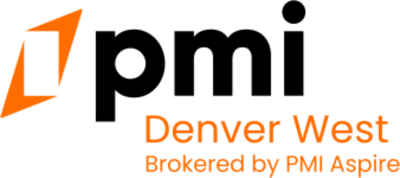Unexpected repairs. Tenant turnover. Seasonal vacancies. These things may feel like a headache, but the real question you should be asking is: Is my property actually profitable? Landlords in Denver can’t afford to base success solely on minimal complaints or low-maintenance tenants. True performance lies in the numbers—through consistent cash flow, measurable ROI, and smart planning for long-term gains.
With the right strategy, your Denver rental can be a reliable source of income and long-term wealth, especially when paired with strong financial systems and reliable insights. Whether you own a single rental or a growing portfolio, now is the time to reassess your property's financial health and see what’s working—and what’s not.
As you reevaluate your numbers, be sure you’re taking advantage of valuable resources like owner statements and reporting to track your rental's full potential.
Key Takeaways
- ROI highlights the effectiveness of your overall investment strategy
- Monthly cash flow gives you a reality check on operational profitability
- Long-term profit includes appreciation, tax strategies, and smart upgrades
- Financial tools and reporting keep your numbers organized and accurate
- Small strategic changes can significantly enhance your property’s ROI
Understanding ROI: Your Investment Report Card
Your Return on Investment (ROI) is the clearest measure of whether your property is performing financially. It's a snapshot that reveals how much profit you're making relative to your total investment.
ROI Formula:
(Net Annual Profit ÷ Total Investment) × 100
Let’s say you purchased a Denver rental for $450,000 and you’re netting $31,500 per year after expenses. Your ROI is 7%—a healthy return in the residential market. But if your ROI is lagging, it’s time to investigate why. Maybe your rent is underpriced, your expenses are too high, or your property is sitting vacant too long.
Tips to Strengthen ROI:
- Review your expenses quarterly
- Benchmark your rent against similar Denver properties
- Reduce vacancy time through early marketing and tenant retention
ROI isn’t static. Monitoring it consistently allows you to make agile financial decisions and avoid long-term underperformance.
Cash Flow: What’s Actually Going in Your Pocket?
While ROI gives you the big-picture performance, cash flow tells you what’s happening month to month. It's the income left over after paying your property's ongoing expenses like:
- Mortgage and insurance
- Property taxes
- Maintenance and repairs
- HOA dues
- Property management fees
Cash Flow Formula:
Monthly Rental Income – Monthly Expenses = Net Cash Flow
Example: If your rental brings in $3,000 and your monthly expenses are $2,400, your cash flow is $600. This may seem modest, but consistent cash flow creates financial breathing room and helps fund future upgrades or cover emergencies.
In a city like Denver, where demand is high but costs are rising, monitoring cash flow ensures you're staying in the green—and growing sustainably.
Long-Term Profit: Building Wealth Beyond the Rent Check
Profit isn't just about what you earn monthly—it’s about how your property builds wealth over time. Even if your cash flow is break-even, your rental can still generate substantial gains through:
Property Appreciation
Denver’s real estate market continues to show strong growth. If your property increases in value by even 5% annually, that’s tens of thousands added to your net worth.
Tax Benefits
Rental property owners in Colorado can deduct expenses like mortgage interest, repairs, property taxes, and even depreciation, helping to lower taxable income.
Smart Upgrades
Strategic improvements, like energy-efficient windows or modern appliances, can boost property value and rental rates, further enhancing your long-term profit margins.
Strategic Exit Planning
If you plan to sell your property, the timing matters. A well-timed sale or a 1031 exchange can help defer capital gains taxes and increase your return.
Tracking Performance with Precision
You can’t manage what you can’t measure. Many landlords fall short simply because they lack structured financial tracking systems.
Here’s how to tighten your financial process:
- Use Cloud Tools: Digital storage keeps all your receipts, leases, and expense logs organized and accessible.
- Automate Reports: Leverage software that generates owner statements and cash flow reports regularly.
- Reconcile Monthly: Match income and expenses to ensure there are no discrepancies or leaks.
Without proper tracking, it’s easy to miss financial red flags or overspend without realizing it. A structured approach brings clarity and confidence.
Want to avoid costly mistakes in the process? Check out these owner disbursement pitfalls to see what not to do.
Small Changes That Deliver Big ROI Gains
You don’t need to break the bank to increase profitability. Simple changes can improve your Denver property’s desirability and reduce vacancy time.
Try These ROI Boosters:
- Enhance Curb Appeal: Landscaping, paint touch-ups, and exterior lighting make a strong first impression.
- Add Smart Features: Items like keyless entry and smart thermostats attract modern tenants.
- Offer Tenant Incentives: Gift cards, free cleaning services, or small upgrades can encourage lease renewals.
- Market Early: Start promoting your property before the current lease ends to avoid gaps.
- Conduct Rent Reviews: Adjust rent annually based on neighborhood comps and market demand.
A strategic property management plan not only improves your ROI but also positions your property as a top choice in Denver’s rental market.
Common Mistakes That Sabotage Profit
Not all losses are obvious. Here are some of the most common ways landlords in Denver unknowingly reduce their rental income:
- Delaying Repairs: What starts as a minor fix can turn into a costly repair job
- Overpricing Rent: Pushing too high above the market rate leads to longer vacancies
- Mixing Finances: Blurring business and personal expenses makes tax time more difficult
- Ignoring Regular Reviews: Without periodic analysis, underperformance flies under the radar
- Missing Tax Deductions: Disorganized records can lead to missed savings on your returns
Running your property like a business requires discipline, but that discipline pays dividends.
Adopt the Investor’s Mindset
Being a landlord in Denver isn’t just about managing a property—it’s about managing a business. And like any successful business, decisions should be based on data and results.
Take the time to analyze your ROI, track your cash flow, and make small improvements where it counts. By doing so, you’re setting your property up for not only short-term success but also long-term wealth generation.
The Profit-Driven Landlord: Your Next Chapter Starts Now
If you're serious about elevating your rental income and maximizing your property’s potential, it’s time to take the guesswork out of property management. At PMI Denver West, we provide data-driven insights, financial reporting, and local market expertise that help you turn your Denver rental into a high-performing investment.
Get expert analysis, clear reporting, and personalized strategies by using our ROI calculator tool to take control of your property's future.
FAQs
What is a good ROI for rental properties in Denver?
Most experts agree that a 6%–8% ROI is solid for residential rentals, though this can vary depending on your investment goals.
How often should I analyze my property’s financials?
Quarterly reviews are ideal, but at a minimum, you should review cash flow and ROI annually.
Is cash flow more important than appreciation?
Both are crucial—cash flow ensures short-term liquidity while appreciation builds long-term wealth.
Can I increase rent every year in Denver?
Yes, but make sure your increases are in line with market conditions and local tenant laws.
What tools can help me track rental performance?
Property management platforms offer automated financial tracking, reporting tools, and cloud-based document storage for easy access.


